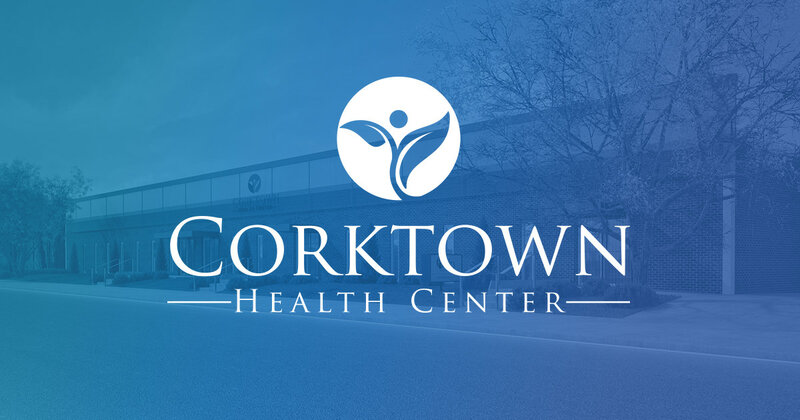
With most of the domestic violence awareness movement focused on heterosexual relationships, the LGBT community has largely been left out of the movement, with significant consequences, writes Anthony Williams, president and CEO of the Corktown Health Center. (Photo: Jennifer Pritchard, MCT)
When it comes to intimate human relationships, often behind closed doors, there are many paths to pain when partners commit violence against one another — emotionally, physically and sexually.
Yes, our society is making progress in addressing the havoc of domestic violence: through better detection by health care professionals and public safety responders, more emergency hotlines and shelters and legal help for those who seek formal protection from their abuser.
Unfortunately, the same degree of compassion and support is not always extended to the lesbian, gay, bisexual and transgender population, where some of the issues and outcomes are even more alarming than with the heterosexual population.
As the National Coalition Against Domestic Violence notes, with most of the domestic violence awareness movement focused on heterosexual relationships, the LGBT community has largely been left out of the movement, with significant consequences.
According to a National Intimate Partner and Sexual Violence Survey, conducted by the National Centers for Disease Control and Prevention (CDC), nearly half of lesbians and 61% of bisexual women experience rape, physical violence or stalking by an intimate partner, compared to 35% of heterosexual women.
Also, 26% of gay men and 37% of bisexual men experience rape, physical violence, or stalking by an intimate partner, compared to 29% of heterosexual men.
The 2015 U.S. Transgender Survey, conducted by the National Center for Transgender Equality, found that 47%, nearly half, of transgender people are sexually assaulted at some point in their lifetime.
Also, a study from the University of Michigan reported that male couples report as much domestic violence as straight couples, underscoring the universal nature of domestic violence in relationships.

Anthony Williams, president and CEO of Corktown Health Center, Michigan’s only health center focused on treatment of the area’s LGBT population. (Photo: Corktown Health Center)
Barriers to safety
Several personal and institutional factors are keeping many LGBT individuals who are abused from getting the help and protection they need.
While all domestic violence victims face some form of verbal threats and intimidation, attempts to isolate or impose financial control, or outright violence, the abusive relationship can take on a special dimension for LGBT individuals, a population already marginalized from mainstream society.
These tactics of power and control include threats to “out” a partner’s sexual orientation or gender identity to family members and friends, potentially ostracizing individuals from their loved ones. Threats also include outing someone to an employer, as there is currently no federal law explicitly prohibiting LGBT discrimination in the workplace, making the fear of financial debt and loss of a career a serious barrier to seeking help.
For a non-biological parent, the risk of losing children is often used against them. Many states do not allow same-sex parents to adopt each other’s children and threats to eliminate all contact can cause someone to remain in an abusive relationship.
Victims of LGBT domestic violence often receive inadequate response from our social safety net. Health care professionals and public safety responders may be inadequately trained and insensitive to this form of domestic violence. Some domestic violence shelters may not accept LGBT individuals, and some of those abused may fear becoming the subject of a police investigation should they report their abuser.
Our greater legal system may fail these individuals. We are not aware of an overtly hostile legal climate in Michigan. However, there is still one state where LGBT individuals cannot legally file a personal restraining order against a same-sex partner, and others where individual law enforcement officials have expressed outright refusal to handle such requests.
Locally, the Michigan Coalition to End Domestic and Sexual Violence offers further guidance on barriers for survivors of domestic violence and sexual assault that will be useful for LGBT individuals, counselors and responders, and the legal community. And there are a number of LGBTQ-affirming partner programs in Michigan that offer same-sex sexual and domestic violence support such as Safe House Center, First Step, Turning Point, and Equality Michigan.
Working together, we must make progress against LGBT domestic violence, just as we are doing against domestic violence in general. These efforts should include the availability of more emergency hotlines for the LGBT community, gender-receptive shelters or safe havens, and special training for counselors, health care officials and first responders in the early detection of LGBT domestic violence.
When individuals become trapped in abusive relationships that manifest in domestic violence, lives and families are destroyed, the workplace is diminished, and our greater culture suffers. It is time to put a stop to domestic violence of any form. The healing must begin with openness about this form of abuse, and vigorous advocacy for those still hurting.
Anthony Williams is president and CEO of Corktown Health Center, which is Michigan’s only health center focused on treatment of the area’s LGBT population. Learn more about Corktown Health Center at www.corktownhealth.org, or by emailing info@corktownhealth.org.


